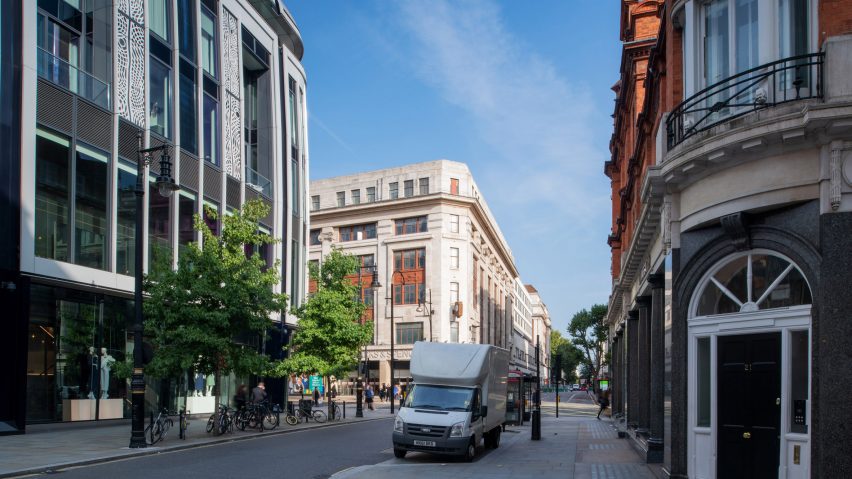
Marks & Spencer wins legal battle over demolition of Oxford Street flagship
The High Court has quashed the government's refusal of planning permission for Marks & Spencer to demolish and replace its flagship store on Oxford Street in London.
The High Court ruled that the rejection of Marks & Spencer's demolition plans by the UK's secretary of state Michael Gove was unlawful, the UK retailer has revealed on X (formerly Twitter).
This victory means Marks & Spencer can move ahead with its plans to replace the art deco building with a new store designed by architecture studio Pilbrow & Partners.
"In my view, it is plain that the secretary of state misinterpreted the National Planning Policy Framework, and therefore erred in law," the high court said in its ruling, reported the Financial Times.
"The secretary of state has not applied the policy, he has rewritten it."
The National Planning Policy Framework (NPPF) outlines the government's planning policies for England.
"Today's judgment couldn't be clearer"
Marks & Spencer initiated a legal challenge against Gove that was heard in the High Court last month.
According to its operations director Sacha Berendji, the court agreed with five of the six arguments it brought forward against him.
"Today's judgment couldn't be clearer, the Court has agreed with our arguments on five out of the six counts we brought forward and ruled that the Secretary of State's decision to block the redevelopment of our Marble Arch store was unlawful," Berendji said.
"The result has been a long, unnecessary and costly delay to the only retail-led regeneration on Oxford Street which would deliver one of London's greenest buildings, create thousands of new jobs and rejuvenate the capital's premier shopping district," he continued.
Marks & Spencer's plans to demolish and rebuild its flagship, named Orchard House, have been the subject of dispute since planning was approved by Westminster City Council in 2021.
That year, the Twentieth Century Society was among those to criticise the wasting of embodied carbon that would result from the redevelopment, launching a petition calling on the retailer to abandon its plans or risk "betraying its own carbon targets".
In response, its architect Fred Pilbrow of Pilbrow & Partners argued that the plans were a necessary replacement.
"I would liken this to a discussion about a not-very-well-performing diesel car from the 1970s," he told Dezeen. "And what we're trying to do is replace it with a Tesla."
Pilbrow's current plans would see the 1930s building and its two extensions, which have been home to M&S for almost a century, torn down and replaced with a 10-storey building.
According to the studio, the new build will reuse 90 per cent of the building's existing materials, including the concrete frame and portland stone elevation, as well as a mix of cross-laminated timber (CLT) and ground granulated blast-furnace slag (GGBS).
Gove's concerns were over aesthetics and carbon consumption
Following the disputes, Gove halted the plans in April 2022 to allow the scheme to be reviewed. He then overturned them in July 2023 alongside the release of a 127-page report.
The report concluded that replacing the building would generate almost 40,000 tonnes of embodied carbon and also expressed concerns about the visual impact it could have on the adjacent Grade-II listed facade of Selfridges.
"The height and appearance of the cornice of the proposed development would be prominent and distracting from the Selfridge's facade, especially when compared with the deferential appearance of Orchard House," it read.
The decision was welcomed by its opponents including the Twentieth Century Society and SAVE Britain's Heritage, which has also campaigned against the demolition.
"This is a massive positive step and we salute the secretary of state," said SAVE Britain's Heritage director Henrietta Billings at the time.
"A huge victory for heritage and environmental campaigners, and a landmark decision for the future of UK construction and the built environment," echoed the Twentieth Century Society.
However, Marks & Spencer's victory today has determined that the fate of the store will be demolition, which Berendji said sends "a clear message to UK and and global business".
"The secretary of state now has the power to unlock the wide-ranging benefits of this significant investment and send a clear message to UK and global business that the government supports sustainable growth and the regeneration of our towns and cities," concluded Berendji.
The image is courtesy of Pilbrow & Partners.